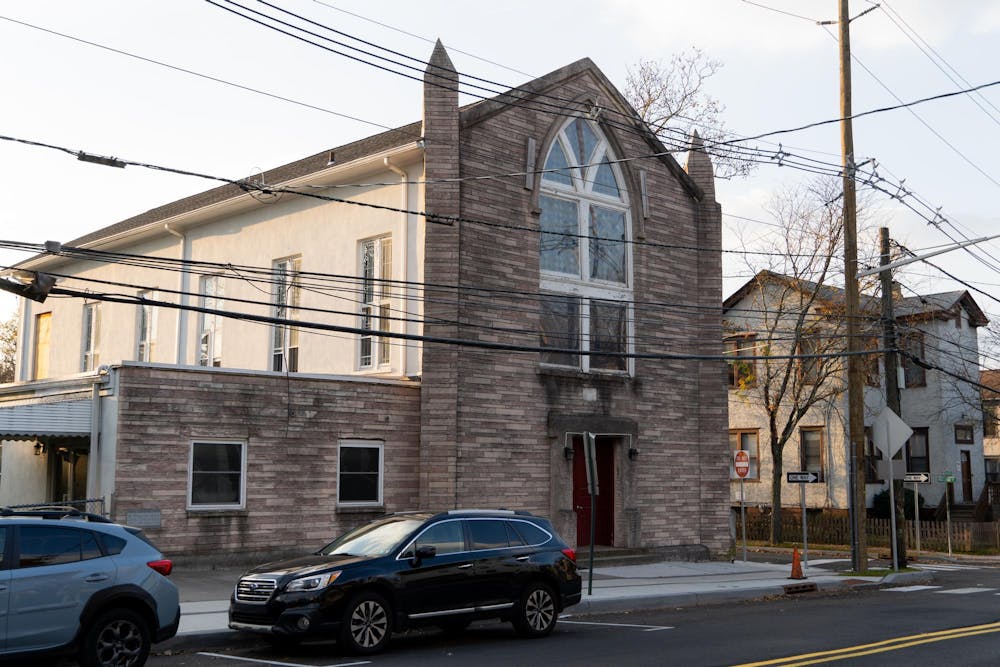A new restoration project application along Witherspoon Street is facing concern from residents fearing displacement and gentrification.
Hillier LLC is planning to undertake a new historic preservation project, which might cause some tenants to be displaced to allow for the creation of new units. Many tenants have described an information vacuum at public meetings, and some are concerned with the project’s potential impact on continued demographic change in the historically Black Witherspoon-Jackson neighborhood.
“My family is under stress not knowing when this is going to happen. If they are going to be renovating these homes, they should find us a house,” one tenant said at the Jan. 9 Historic Preservation Committee (HPC) hearing about the project.
Local activist Maria Juega, who testified on both Jan. 8 and 9, told The Daily Princetonian in an interview that “there is a lot of merit to trying to preserve architectural style, but not at the expense of working class families and further gentrification.”
The application proposes to enhance the historical aesthetic and restore dilapidated properties along Witherspoon Street. In the process, Hillier plans to build 75 new residential units, of which 20 percent must be affordable, pursuant to the municipality’s master plan and housing overlay requirements.
The project was approved by the HPC subject to recommendations addressing architectural concerns from residents and consulting with the Witherspoon-Jackson Historical and Cultural Society on naming of buildings.
However, the project’s projected timeline has since been paused. Hillier asked to cancel the Planning Board hearing scheduled for Jan. 23, due to compliance concerns with recent updates to New Jersey’s affordable housing requirements that increase minimum size requirements of affordable units.
If the project goes forward, there are 34 units currently housing tenants that would be relocated to allow for the new restoration. Two tenants provided testimony at the Jan. 9 meeting, expressing concern that relocation will pose uncertainty for children currently attending schools in the district.
At the Jan. 9 meeting, Bob Hillier, the managing principal of Hillier LLC, said he has met with each of the tenants and will provide funds to enable relocation.
Tenants received notification of this project via flyers in July 2023. In response, Juega organized a know-your-rights session with Rutgers Professor Greg Baltz and students of the Rutgers University Law School’s Eviction Prevention Project. The session was attended by 15 tenants.
New Jersey’s Anti-Eviction Act states that any eviction must have a good cause and a “Notice to Quit” describing that cause in detail to tenants. Grounds for a good cause eviction include “Health and Safety Violation or Removal from the Rental Market” and “Conversion to Condominium, Cooperative or Fee Simple Ownership.”
While 15 units must be designated affordable, the other 60 will be market rate, concerning some residents. The affordability of the Witherspoon-Jackson Neighborhood, a historically Black neighborhood, has faded in the past few decades, according to previous ‘Prince’ reporting.

At the Jan. 8 hearing, former Princeton Borough mayor Yina Moore expressed desire “for recognition of people unable to stay in this neighborhood,” claiming that the “missing middle” housing is not necessarily targeted at the same people that have been excluded.
Michael Floyd, another Witherspoon-Jackson resident, claimed that there are no African American people living in any of the old Witherspoon properties, and continued that “the last thing I want is you to name a building after my parents and bring in no African American in any of the properties.”
But despite concerns regarding size and nature of the new units, Hillier expressed that the rental condominiums will bring in necessary capital to finance the project.
Aubrey Haynes, who manages and owns a building across from the project, praised Hillier for creating “workforce housing” in a creative manner. Others disagree: While Juega acknowledged that Hillier seeks to cover some of the cost with the new housing, she noted that these units are not suitable for working class families due to their size.
In an interview with the ‘Prince,’ Planning Director Justin Lesko cautioned against assuming who will be attracted to what kind of housing. “I don’t think we should really be getting into who is a family,” he said. “[It] could mean a lot of things to a lot of people.”
The Planning Board, however, does review fulfillment of master plan considerations, including having a variety of housing types from studios, single bedroom apartments, multi-bedroom apartments, and single family homes. Lesko therefore expects that his recommendation on this project will take those matters into consideration.
This proposed project sits in the location of the AHO-7 overlay, which creates an opportunity to build at greater heights and bulk requirements than the underlying zoning allows for, as long as 20 percent of the new building is designated affordable housing.
The overlay language also recognizes this location as housing the Witherspoon-Jackson Neighborhood and requires new buildings to maintain aesthetic character. The overlay is one of seven passed by the Municipality of Princeton to incentivize affordable housing construction to fulfill Mount Laurel Doctrine obligations, which required municipalities to create their “fair share” of affordable housing in various rounds. In March 2024, responding to the end of the Third Round (1999–2025), Governor Phil Murphy signed a landmark affordable housing bill that requires New Jersey’s 564 municipalities to publish information on their implementation of Third Round requirements.
Hillier LLC declined to comment for this piece.
Abby Leibowitz is a senior News writer for the ‘Prince’ from Silver Spring, Md.
Please send any corrections to corrections[at]dailyprincetonian.com.








